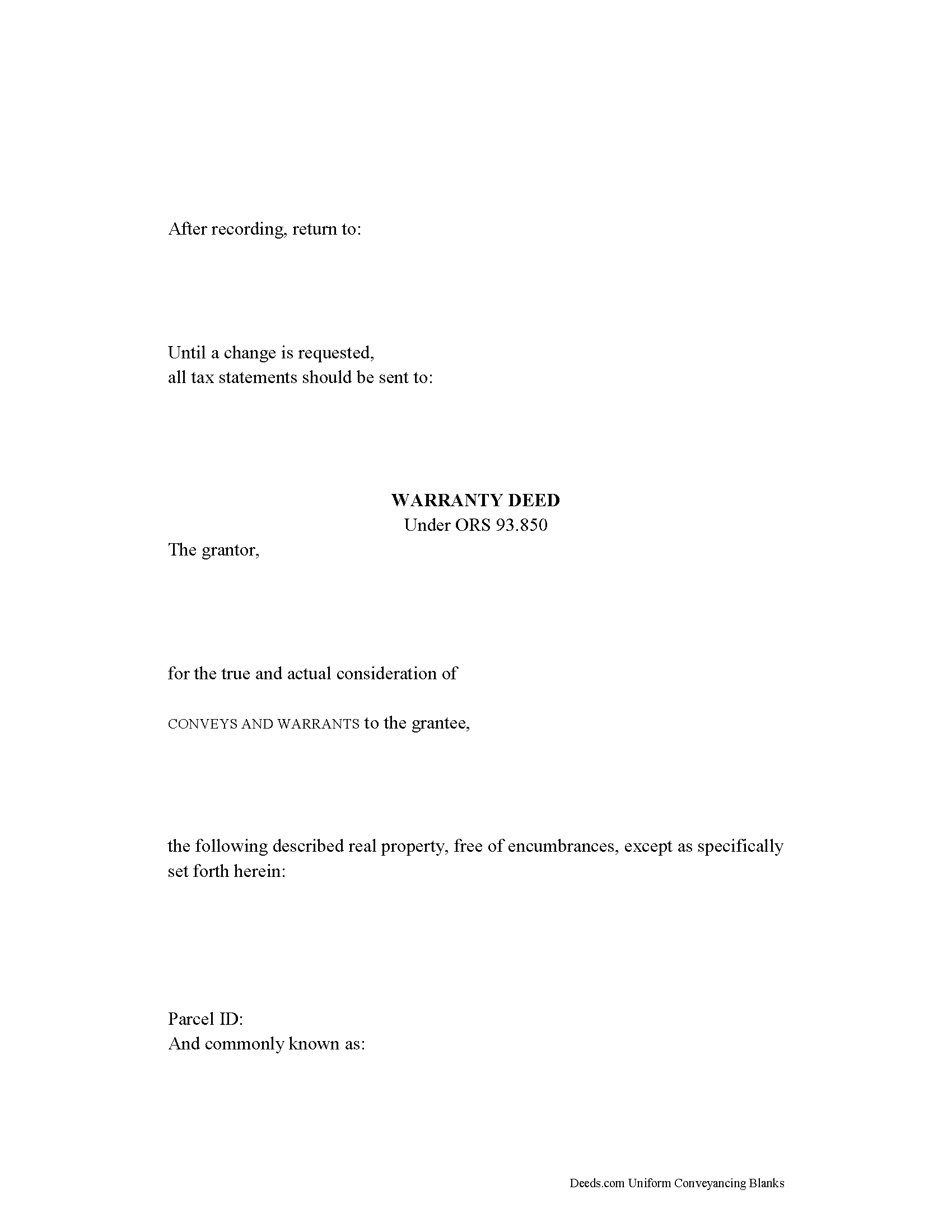Download Oregon Warranty Deed Legal Forms

Oregon Warranty Deed Overview

In Oregon, title to real property can be transferred from one party to another by executing a warranty deed. A warranty deed conveys an interest in real property to the named grantee with full warranties of title.
Warranty deeds are statutory in Oregon under ORS 93.850, and they convey real property in fee simple with the most assurance of title. When a warranty deed uses the statutory form, the following covenants are implied: the grantor guarantees that he or she holds title to the property and has good right to convey it; that the property is free from encumbrances (with the exception of any noted in the deed); and that the grantor will defend the title against all claims (ORS 93.850(2)(c)). If the grantor "desires to exclude any encumbrances or other interests from the scope of the covenants... such exclusions must be" noted in detail on the face of the deed (ORS 93.850(3)). This warranty of title is greater than that of a limited or special warranty deed, which guarantees the title only against claims that arose during the time the grantor held title to the property, or a quitclaim deed, which offers no warranties of title.
In Oregon, a lawful warranty deed includes the grantor's full name, mailing address, and marital status; the true consideration paid for the transfer (ORS 93.030); and the grantee's full name, mailing address, marital status, and vesting. Vesting describes how the grantee holds title to the property. Generally, real property is owned in either sole ownership or in co-ownership. For Oregon residential property, the primary methods for holding title are tenancy in common and tenancy by entirety. A conveyance of real estate to two or more unmarried persons is presumed to create a tenancy in common. A conveyance to a married couple creates a tenancy by entirety. Joint tenancy is abolished unless the conveyance is to trustees or personal representatives (ORS 93.180).
As with any conveyance of realty, a warranty deed requires a complete legal description of the parcel. Recite the prior deed reference to maintain a clear chain of title, and detail any restrictions associated with the property. The completed deed must be acknowledged by the grantor (and his or her spouse, if applicable) in the presence of a notary.
Deeds affecting property in Washington County are subject to a local transfer tax (Chapter 3.04, Washington County Code). If an exemption to the transfer tax applies, the proper application form must be submitted. Forms are available through Washington County's department of assessment and taxation.
Record the original completed deed, along with any additional materials, at the clerk's office in the county where the property is located. Contact the same office to confirm accepted forms of payment.
This article is provided for informational purposes only and is not a substitute for the advice of an attorney. Contact an Oregon lawyer with any questions related to the transfer of real property.
(Oregon WD Package includes form, guidelines, and completed example)